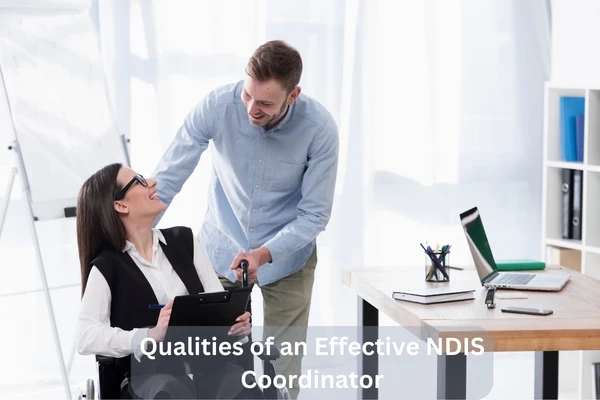The National Disability Insurance Scheme (NDIS) is a transformative initiative aimed at empowering individuals with disabilities to lead more fulfilling lives.
At the heart of this complex system is the NDIS coordinator, a pivotal figure tasked with supporting participants through the maze of services and resources available.
In this blog post, we will delve into the essential qualities that define an effective NDIS coordinator.
1. Empathy and Compassion:
Effective NDIS coordinators are characterised by a genuine sense of empathy and compassion. They understand that each participant has a unique set of challenges and aspirations, and they approach their role with sensitivity.
This quality enables NDIS support coordinators to build trust and establish strong rapport with participants, fostering a positive and supportive relationship.
2. Excellent Communication Skills:
Communication lies at the core of effective coordination services. Coordinators need to articulate complex information clearly, ensuring that participants comprehend their rights, options, and the overall NDIS process.
Moreover, active listening skills are crucial for understanding participants' needs and tailoring support accordingly.
3. Problem-Solving Aptitude:
NDIS coordinators often navigate intricate scenarios and unforeseen challenges. The ability to think critically and devise creative solutions is a key quality.
Whether it's addressing gaps in services or resolving conflicts, effective coordinators approach problems with a solution-oriented mindset.
You may also like to read: Why is Support Coordination important?
4. Cultural Competence:
Diversity is a hallmark of the NDIS participant pool. Effective coordinators recognize and embrace cultural diversity, understanding the impact it has on a participant's experience.
Cultural competence ensures coordinators can tailor their approach to respect and accommodate individual cultural backgrounds, enhancing the overall quality of support.
5. Organisational Skills:
Managing multiple cases, paperwork, and deadlines demands strong organisational skills. Effective NDIS coordinators maintain meticulous records, ensuring that participant plans are up-to-date and aligned with their evolving needs. This quality contributes to the efficiency and reliability of the coordination process.
6. Adaptability and Flexibility:
The disability landscape is dynamic, with evolving participant needs and changes in policies. Effective coordinators demonstrate adaptability, staying informed about updates in the NDIS framework and adjusting their approach accordingly. Flexibility allows them to meet the diverse and evolving needs of participants.
7. Advocacy Skills:
A crucial aspect of NDIS coordination is advocating for participants' rights and needs. Effective coordinators act as staunch advocates, ensuring that participants receive the support and resources they are entitled to.
This advocacy role extends to interfacing with service providers, government agencies, and other stakeholders on behalf of participants.
8. In-Depth Knowledge of NDIS Policies:
Navigating the NDIS landscape requires a comprehensive understanding of policies and procedures. Effective coordinators stay abreast of the latest developments in the NDIS framework, demonstrating a commitment to ongoing learning.
This knowledge equips them to guide participants through the intricacies of the system with accuracy and confidence.
Conclusion:
In conclusion, the role of an NDIS coordinator is multifaceted, requiring a unique blend of interpersonal skills, knowledge, and a commitment to advocacy.
Effective coordinators embody qualities such as empathy, excellent communication, problem-solving aptitude, cultural competence, organisational skills, adaptability, flexibility, and a deep understanding of NDIS policies.
By embodying these qualities, NDIS support coordinators play a pivotal role in empowering participants and contributing to the overall success of the NDIS program. Their dedication ensures that individuals with disabilities receive the tailored support they need to achieve their goals and lead fulfilling lives within their communities.


